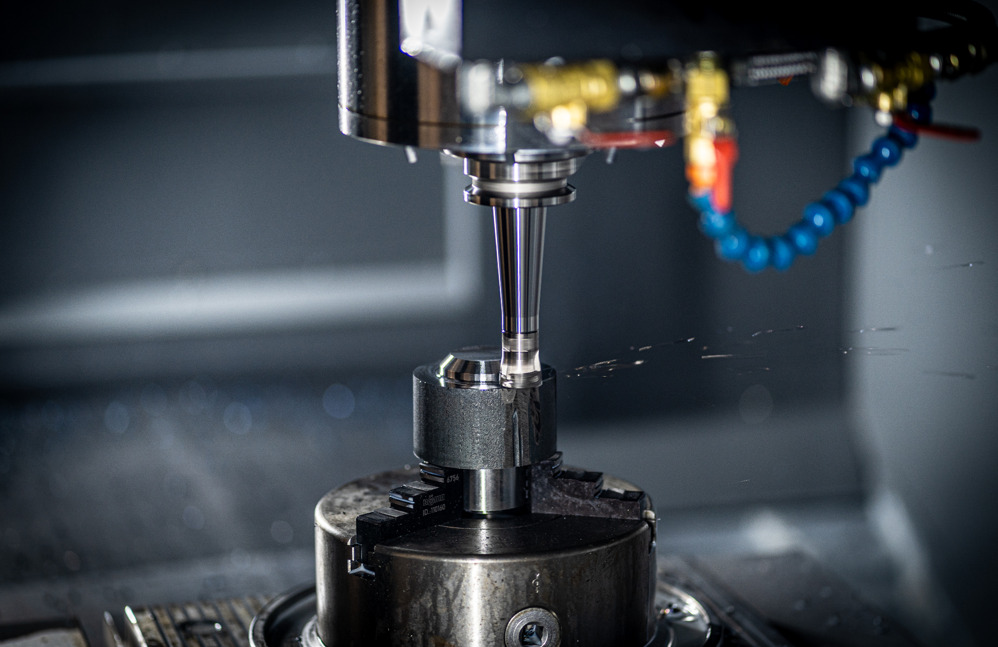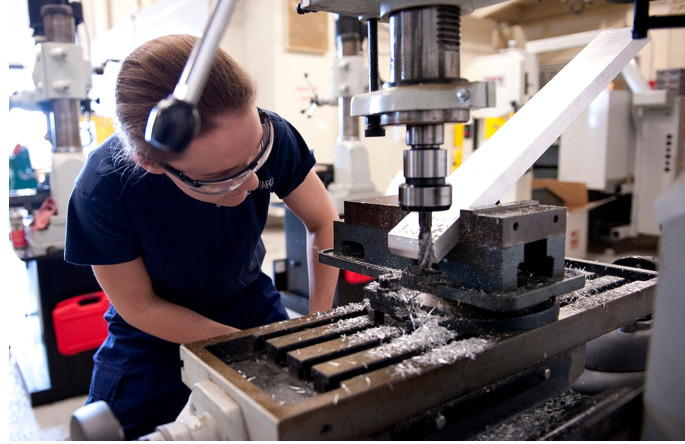Starting A CNC Business: A Comprehensive Guide
by Arnab Dey Business Published on: 28 September 2023 Last Updated on: 07 November 2024

“Your ambition to carve a niche in the manufacturing world has a partner in CNC – a technology that shapes dreams into reality.”
Computer Numerical Control (CNC) has emerged as a transformative force in the realm of manufacturing. Offering precision, efficiency, and scalability, it’s no wonder that the allure of starting a CNC business is increasingly hard to resist. This extensive guide aims to illuminate every facet of setting up a CNC venture, ensuring you’re armed with the knowledge needed for success.
Why consider CNC for your business?
In today’s manufacturing landscape, CNC plays a pivotal role. It not only allows for precision production but also provides the capability to reproduce designs en masse, ensuring consistency. This technology has rendered manual machine operations largely obsolete, offering a more cost-effective, quicker, and accurate production method.
What are the key steps in starting a CNC business?
Starting a CNC business requires a systematic approach.
Here’s a foundational roadmap to consider:
Identify Your Niche: Understand the specific industries or sectors you want to cater to.
Secure Financing: Determine your initial investment and secure funds, be it through loans, savings, or investors.
Choose Your Location: Ensure it’s accessible, scalable, and adheres to zoning laws.
Purchase Equipment: Invest in high-quality CNC machinery and tools.
Hire and Train Staff: Assemble a team with relevant skills and continuously train them.
Market Your Business: Develop a brand identity and promote your services online and offline.
Establish Vendor Relations: Secure reliable suppliers for consistent raw material quality.
Set Pricing Models: Based on operational costs, market demand, and competition.
Stay Updated: Continuously update yourself on the latest in CNC technology and industry trends.
How does CNC machining work?
CNC machining is a subtractive manufacturing process where computer-controlled machine tools are employed to produce a part from a solid material. The computer directs the machine to move in different directions to remove material and achieve the desired shape. Its applications span from creating intricate jewelry designs to producing airplane parts.
What machines and tools are essential for a CNC business?
The machines and tools you choose will determine the scope and quality of your services. Here’s an overview:
Milling Machines
These versatile tools can perform multiple operations, from drilling and slotting to threading. They offer precision and can handle complex designs. However, they can be expensive and require skilled operators.
Lathes
Lathes are optimal for producing symmetrical parts about an axis of rotation. They excel in turning operations and offer high precision.
CNC Routers
Excellent for cutting soft materials like wood and plastic, CNC routers are less precise than milling machines but are faster and more affordable.
Plasma Cutters
Used for cutting metals, they offer speed but may not provide the precision of milling machines.
CNC Fiber Laser Cutters
CNC fiber laser cutter machines provide high precision when cutting metals and non-metals, producing clean cuts.
CNC Drills
Optimal for drilling operations, they can handle multiple holes in a single operation.
CNC Grinders
Used for finishing operations, these machines provide smooth surfaces but can be slow.
What materials can be used in CNC machining?

Different materials suit different projects.
Here’s a brief on their suitability:
Aluminum: Lightweight, durable, and resistant to corrosion.
Stainless Steel: Strong and corrosion-resistant but harder to machine.
Brass: Easy to machine but less strong than steel.
Copper: Highly conductive but soft.
Polycarbonate: Durable plastic, ideal for prototypes.
ABS: Common plastic with good mechanical properties.
Titanium: Strong and lightweight but difficult to machine.
PEEK: High-performance plastic known for its durability.
How to choose the right CNC machine for your business needs?
Selecting the right machine is crucial. Consider the type of projects you’ll undertake, the volume of orders, and your budget.
What are the different types of CNC machines available?
There are numerous types, from milling machines and lathes to laser cutters and plasma cutters. Each serves different needs.
Which machine offers the best return on investment?
Milling machines and lathes generally offer good ROI due to their versatility.
How to source raw materials for CNC machining?
Choose suppliers based on material quality, cost, and reliability.
Establishing vendor relations for consistent supply
Build strong relationships with vendors to ensure a consistent material supply.
Evaluating the quality of materials
Regularly inspect materials to ensure they meet your quality standards.
How do you determine pricing for CNC services?
Your pricing should reflect overhead costs, market demand, and competitive rates.
Calculating overhead costs
Factor in machinery costs, employee salaries, utility bills, and material costs.
Considering market demand and competition
Research what competitors charge and what the market is willing to pay.
How to market and promote your CNC business?
Branding, online presence, and relationship-building are pivotal.
Digital Marketing for CNC Businesses
Harness the power of SEO, PPC, and social media to reach potential clients.
Networking in the Manufacturing Industry
Attend trade shows, and seminars, and join industry associations.
What software is essential for CNC operations?
CAD/CAM software is vital as it allows you to design and simulate your projects before machining.
Leading CNC software solutions
Popular options include SolidWorks, MasterCAM, and Fusion 360.
How to choose the right software for your business needs?
Consider ease of use, compatibility with your machinery, and available features.
What are the potential challenges in a CNC business?
Challenges can range from technological advancements and market competition to client demands.
Keeping up with technological advancements
Stay updated to ensure your machinery and techniques remain relevant.
Addressing client demands and customization needs
Custom projects may require additional time and resources.
Ensuring safety and compliance standards
Adhere to safety norms and industry standards to avoid legal complications.
How to hire and train employees for your CNC business?
Invest in skilled CNC operators and emphasize continuous training.
Finding skilled CNC operators
Recruit from vocational training institutes or through industry contacts.
Investing in employee growth and retention
Offer regular training and growth opportunities to retain talent.
How to maintain and upgrade CNC machines?
Routine maintenance ensures longevity, while upgrades can boost efficiency.
Establishing a routine maintenance schedule
Regular checks and maintenance can preempt potential issues.
When is the right time to upgrade your CNC machinery?
Consider upgrading when newer models offer substantial benefits or when repair costs of old machines escalate.
Legal considerations and licensing for CNC businesses
Ensure you have the necessary permits and certifications.
Required certifications for CNC operations
Obtain certifications from recognized industry bodies.
How to Market and Promote Your CNC Business
No business can flourish without a solid marketing plan. For CNC enterprises, the strategy lies in a blend of traditional networking and digital brand-building.
Digital Marketing for CNC Businesses
The online realm is a game-changer for all industries, and the CNC domain is no different. Building a user-friendly website, complete with portfolio sections showcasing past projects, can work wonders. A strong presence on social media platforms such as LinkedIn, Instagram, and Facebook allows businesses to showcase their capabilities and reach a broader audience. Blog posts about CNC trends, machine reviews, and success stories can enhance website SEO, driving more organic traffic.
Networking in the Manufacturing Industry
The traditional approach remains golden. Attend industry conferences, seminars, and workshops. Forge connections with fellow professionals. Establishing mutual-referral systems with other businesses that are complementary to your CNC operations can also provide a steady stream of potential clients.
What Software is Essential for CNC Operations?
Behind every precisely carved piece by a CNC machine is a sophisticated software working in tandem with it. The significance of CAD/CAM software can’t be overstated in the CNC realm.
Leading CNC Software Solutions
There are numerous software options available in the market, with brands like Autodesk, Mastercam, and TinkerCAD taking the lead. These solutions provide a range of features from 3D modeling to machine simulation.
How to Choose the Right Software for Your Business Needs?
While selecting the appropriate software, factors such as the machinery you employ, the complexity of the tasks you handle, and your budget are pivotal. It’s also wise to consider scalability, ensuring the software can accommodate your business’s growth.
What are the Potential Challenges in a CNC Business?
Every venture has its set of challenges, and the CNC world is no different. Be it rapid technological shifts, unpredictable client demands, or ensuring safety standards, an entrepreneur should be ready to tackle these head-on.
Keeping up with Technological Advancements
The CNC industry is evolving rapidly. New software, innovative machines, and cutting-edge techniques emerge regularly. To stay competitive, continuous research, upgrades, and training are paramount.
Addressing Client Demands and Customization Needs
Every client will have unique requirements. Meeting these specific needs without compromising on efficiency and profitability is an art that CNC business owners need to master.
Ensuring Safety and Compliance Standards
Safety can’t be stressed enough. Regular safety drills, equipment checks, and certifications ensure that both your employees and machinery remain in top-notch condition.
How to Hire and Train Employees for Your CNC Business?
Your workforce is the backbone of your business. Hiring skilled employees and investing in their training ensures high productivity and reduces errors.
Finding Skilled CNC Operators
Searching for individuals with a proven track record, a keen eye for detail, and a passion for precision can be the difference between a good and a great CNC business. Platforms like LinkedIn, Indeed, and niche manufacturing job boards can aid in this search.
Investing in Employee Growth and Retention
Continuous training sessions, workshops, and certification courses ensure that your team remains updated with the latest in CNC tech. It not only enhances their skill set but also instills a sense of loyalty, reducing employee turnover.
How to Maintain and Upgrade CNC Machines?
Machine longevity, precision, and efficient output are directly tied to how well they’re maintained. In the world of CNC, this correlation is even stronger given the intricate nature of tasks these machines perform.
Establishing a Routine Maintenance Schedule
Every CNC machine, irrespective of its type, requires a diligent maintenance routine. This includes periodic checks for wear and tear, calibrating the machine for accuracy, lubricating moving parts, and checking software for updates. A well-maintained machine not only lasts longer but also ensures optimal precision.
When is the Right Time to Upgrade Your CNC Machinery?
While maintaining your equipment can extend its lifespan, there comes a point when an upgrade becomes inevitable. Factors to consider include the machine’s age, frequency of breakdowns, advancements in technology, and evolving business needs. Investing in newer models might be cost-intensive initially, but the long-term benefits in efficiency, power savings, and precision often justify the outlay.
Legal Considerations and Licensing for CNC Businesses
Entering the CNC arena means familiarizing yourself with various legal aspects, from permits to intellectual property considerations. This ensures smooth business operations and shields you from potential legal pitfalls.
Required Certifications for CNC Operations
Depending on your region, specific certifications might be necessary. For instance, if you’re dealing with aerospace or medical components, you might need to adhere to stringent standards and certifications. Regular audits and maintaining a track record can assist in keeping these certifications current.
Understanding Intellectual Property Rights in CNC Designs
CNC designs often straddle the delicate line between creativity and functionality. It’s pivotal to understand copyright, patent, and trademark laws as they apply to your designs and creations. Ensuring your designs are original protects you from infringement claims and also allows you to protect your unique creations.
Where to Find Potential Clients and Grow Your CNC Business?
While having state-of-the-art machines and skilled personnel is essential, finding clients who require your services is equally crucial. Here’s how you can expand your clientele:
Industries Heavily Reliant on CNC Services
Target sectors like aerospace, automotive, construction, and electronics. These industries regularly require CNC services and reaching out to them can be highly beneficial.
Effective Sales Strategies for a CNC Business
Apart from online marketing and networking events, consider offering introductory discounts, bundled services, or showcasing your unique capabilities at trade shows. A proactive sales strategy, combined with excellent service, can bolster client acquisition.
Conclusion
Starting a CNC business is no small feat. From understanding the intricacies of CNC machining to hiring skilled professionals, from marketing strategies to legal considerations, it requires a holistic approach. However, with the right knowledge, resources, and passion, it’s an endeavor that promises substantial rewards. For those embarking on this journey, it’s essential to stay updated, be adaptable, and focus on delivering unparalleled quality. After all, in the world of precision and accuracy that is CNC, quality and precision are the cornerstones of success.
Read Also:



































































































